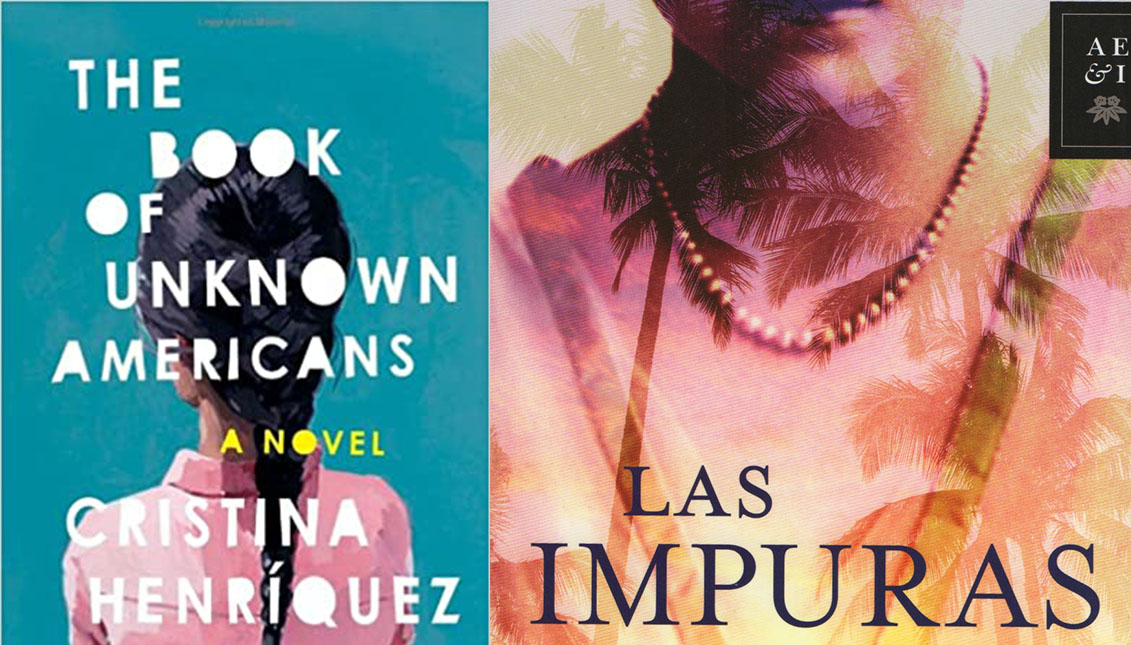
Three books with a Panamanian soul to have on your radar
From Carlos Wynter Melo to Veronica Chambers via Cristina Henríquez, there is a literary Panama beyond the canal.
A finalist for the 2015 Caribbean Writers' Association Award, Las Impuras is a novel that delves into identity— between who we are and who we think we are. It does so through the encounter of two women, a 60-year-old who has lost her memory and a 30-year-old who helps her to remember by telling her who she might have been through the impressions she makes on her.
It's a beautiful narrative about the narratives that weigh on us and the limits between imagination and reality, in which Melo, with a simple but effective style, takes us backwards through Panama through its miscegenation and oppressions, following the course of memory, to travel to the year 1989 when the U.S. army invaded the country and General Noriega was overthrown.
Melo's books include El Escapista y otras reapariciones (The Escapist and Other Reappearances, 2007), Nostalgia de escuchar tu risa loca (Nostalgia for Hearing Your Crazy Laughter, 2013), Ojos para ver una invasión (Eyes to See an Invasion, 2015), Mujeres que desaparecen (Women Who Disappear, 2016) and the essay collection Panamá: El dique, el agua y los papeles (Panama: The Dike, the Water and the Papers, 2017).
His work has also appeared in journals such as Words Without Borders and in the anthology The Future Is Not Ours: New Latin American Fiction (2012), translated by Janet Hendrickson.
It has been some years since Chambers, writer and editor at prestigious media outlets such as NYT and Newsweek, published her memoirs Mama's Girl (1996). But like all great books, it is still eminently current. In it, the Afro-Latin journalist describes her childhood on the streets of Brooklyn in the 1970s and her relationship with her mother, a Panamanian immigrant who struggled to raise the family and deal with a somewhat troubled son with little time to applaud Veronica's achievements.
The girl realized that the best she could do to help was to be a model and extra-responsible daughter, but looking back, she saw that she had achieved much more than was expected of her. What do our mothers expect of us, what do we expect of them, what can we give in return?
The book is a display of sincerity and a moving story that adds to other works, such as the award-winning memoir Yes, Chef, which she wrote with chef Marcus Samuelsson, or the novel The Go-Between.
RELATED CONTENT

There is no universal definition of what it means to be American, especially for migrants who have found themselves in that highway median between their dual identity and what others, often with prejudice, have said about them.
A descendant of Panamanians, the writer Cristina Henríquez reflects on this question through two families whose destinies are about to collide. On the one hand, a Mexican couple who emigrate to the United States in search of a cure for their daughter, Maribel, who has suffered a serious accident; on the other, a Panamanian family settled in the country whose son, Mayor Toro, falls in love with Maribel at first sight.
Thus begins the relationship between the modern-day Montesco and Capulet, which the author skilfully interweaves with the testimony of Latin American migrants who have arrived in the country in search of the longed-for American dream.
It's an intriguing, original and gently ironic novel that, when it was published in 2014, manages to illuminate part of the debate about the Latino experience in the United States in which we are still immersed.
The Book of Unknown Americans was a finalist for the Dayton Literary Peace Prize and shortlisted for the Andrew Carnegie Medal for Excellence in Fiction. Cristina Henríquez's works also include Come Together, Fall Apart: A Novella and Stories (2006) and The World in Half (2009).












LEAVE A COMMENT: